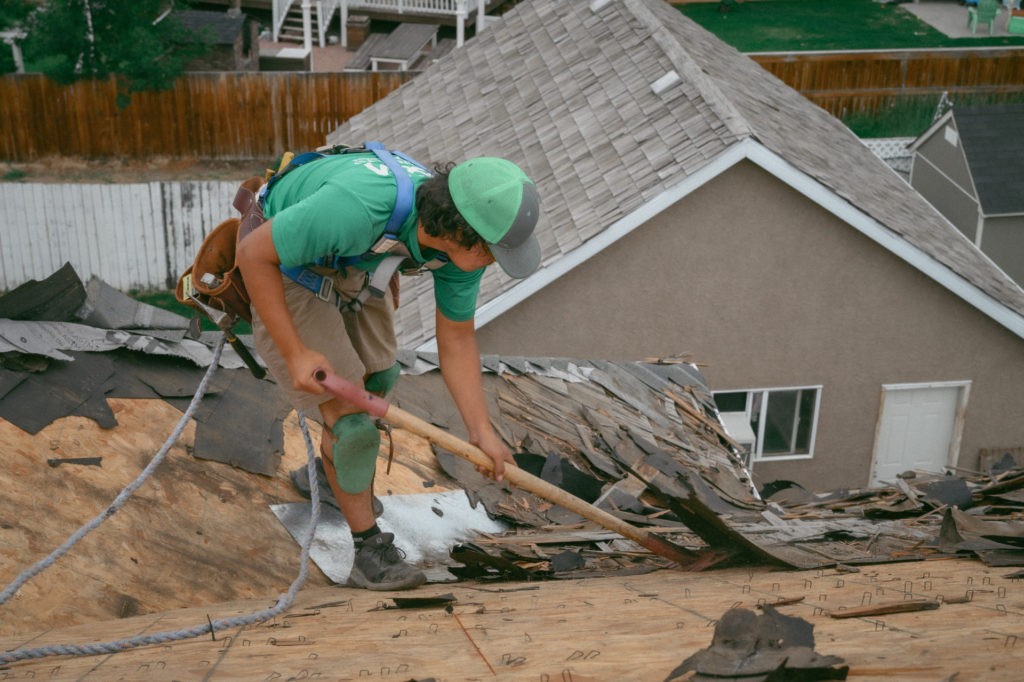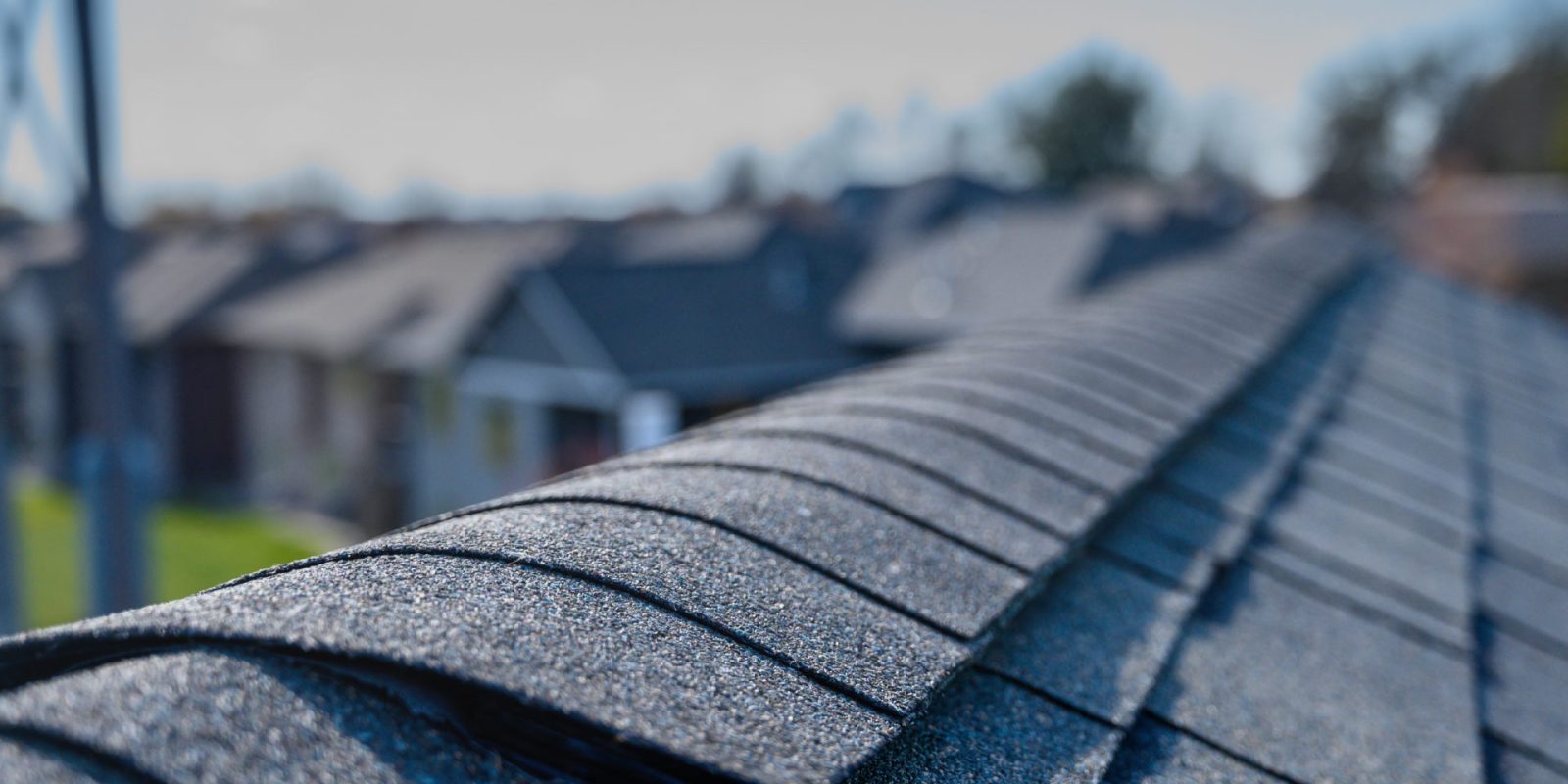The recycling process can feel like a behind-the-scenes operation. Homeowners can watch our crew remove old shingles and sort them, but the rest of the process happens elsewhere. Still, many homeowners make a priority to work with roofing companies who recycle materials, so it’s fair to be curious about what happens next. Here’s what we do when we remove old shingles, and what happens to the recycled shingles later on.
What Does the Recycling Process Look Like in Southern AB?
We work out of Lethbridge and Cranbrook, and service roofs all over southern Alberta and the Kootenays. The process for recycling shingles here is similar to the process for dumping shingles as waste, so it’s easy to opt for recycling. Additionally, we’re an Owens Corning Preferred Contractor, and have made a commitment to recycle shingles for the sake of the environment and the industry.

After we remove the old shingles from a roof, we sort out all the plastics, metals, and other materials that were also removed so we’re left with just asphalt (though other parts are recyclable too, like nails and other metals). We then drop off this clean shingle pile at the appropriate facility; this is called a clean dump. For us, this is the same place as we would dump shingles to be trashed, so there’s no added transportation costs to absorb or pass on to customers.
What Do Shingles Get Recycled Into?
From there, shingles are sent to nearby recycling operations where they are broken down. This crushed mix is most often used to pave new roads and provide fill for repairs, though there are other applications as well.
According to Owens Corning, old shingles from the average house can provide asphalt for 200 feet of a two-lane highway. We’re proud to recycle old shingles; it not only provides product for use in roadways, but it cuts down construction waste that would otherwise sit in landfills. As a company that prides itself on setting a higher standard in roofing, this is important to us.
Are All Shingles Recycled?
There’s been a recent push to recycle more shingles but the industry isn’t there yet. The city of Lethbridge has a Business Waste Diversion Strategy to encourage businesses to recycle materials including asphalt shingles. They state that businesses in Lethbridge generate over 60% of waste going to the landfill, and they aim to cut this amount in half. There are separate commercial drop off locations and fees for including recycled materials with regular waste, so it can be more expensive for companies who don’t recycle.
Having said this, not a lot of companies do clean dumps because it takes more time and effort. If you’re looking for environmentally friendly roofing materials, it’s worth finding a company that will recycle your old roofing materials—but it may also be the better choice, economically.
At C&M Roofing, we recycle all the asphalt shingles we remove. As we mentioned, our main shingle supplier Owens Corning encourages shingle recycling and offers contractors a pledge to recycle roof shingles.
You can watch their video on shingle recycling where they show parts of the process like the grinding equipment used and what the end result looks like.
Then there’s some companies that lay new shingles over top of old shingles, which also means the shingles won’t get recycled. We make sure to remove old shingles so we can detect any other repairs the roof needs, like rotting plywood. Usually, if shingles are not recycled they’re simply dumped as trash, which makes up a significant portion of Canada’s waste.
Recycling shingles benefits Canadians by reducing waste but also reducing the amount of new resources that need to be used for other industries.
Then There’s Shingles Made From Recycled Materials
If recycling is important to you, you can look into shingles made from recycled materials, as well. Euroshield in Calgary makes shingles from recycled tires, which we’ve installed on many homes. They are made to look like natural slate or wood shake roofing, but they provide better protection. We consider them lifetime materials because of their durability. Choosing these products is just another way to reduce waste in landfills, and you get a superior, long-lasting product. Ask us about your options, we’d be happy to help!

